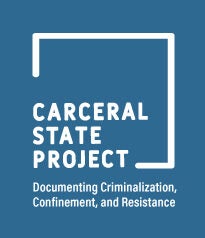
The surveillance, policing, confinement, and exclusion of migrants and mixed-status communities have been fundamental to the development and growth of the U.S. carceral state. The student-faculty teams investigating themes related to Immigration and the Carceral State collaborate directly with advocates, community organizers, and non-profit immigration attorneys to document the recent history of immigration law enforcement in the United States and devise strategies for addressing its impacts. Initiatives include a multi-sited project documenting and assessing the health impact of worksite immigration raids, a series of community-informed guides for people in immigration detention without legal representation, and an analysis of regional Immigration Court proceedings. While other DCC research projects will contribute to this theme, the main teams documenting Immigration and the Carceral State are ICE in the Heartland and the Immigrant Justice Lab.
ICE in the Heartland:
Community Impacts of Worksite Immigration Raids

ICE in the Heartland (click here to visit the external website) developed in response to a large increase in worksite immigration raids conducted during the Trump administration. Researchers on the project team, who had written about deportation and immigration raids in the past, fielded numerous calls from reporters and carefully monitored the public discussion about raids. This led to two conclusions:
First, the public understanding of immigration raids is extremely limited. While some reporters–most often Spanish-speakers with contacts in local communities–considered longer term impacts in the years following raids, the general public discussion in the English-speaking, non-immigrant discourse summarized the impacts of raids as the number of people removed on the day the raid occurred. This is certainly not the whole story.
Second, this story is not ours to tell, or at least not ours to tell alone. Rather, it is the families and communities hit by immigration raids who can best describe their impacts.
This project is our attempt to center impacted communities as the story-tellers of immigration raids, with the collaboration of a wide range of community organizers, graduate and undergraduate students at the Universities of Michigan and Iowa, and two brilliant artist/activists. Visit the About page to learn more about the research team and process.
The takeaway message: Stories of immigration enforcement are complicated, intricate, and traumatic. It takes a collaborative team of storytellers deeply engaged in the work to tell their stories. Researchers, the media, advocates, and communities all have a role in developing and centering these stories.
Visit the exhibit for the full story.
Immigrant Justice Lab:
Guides for Defending Yourself in Immigration Court

Have you or someone you know been detained by immigration officials? Have you or someone you know been given a notice to appear in immigration court? It is very important to get a lawyer to help you with your case. However, there are many people who cannot afford a lawyer or cannot find a lawyer who will help them at no cost. If you find yourself in this situation, these guides, written by a team of experienced lawyers, will help you to defend yourself in immigration court. View the full reports here.
¿Ha sido usted, o algún conocido suyo, detenido por los oficiales de inmigración? ¿Ha recibido usted, o algún conocido suyo, un aviso diciendo que tiene que presentarse en la corte de inmigración? Es muy importante buscar un abogado para ayudar con su caso. Sin embargo, hay mucha gente que no tiene recursos para pagar un abogado y que no puede encontrar un abogado de los que ayudan a la gente necesitada sin pago. Si usted o algún conocido se encuentra en esta situación, estas guías, escritas por un equipo de abogados con mucha experiencia, lo ayudarán o la ayudarán a defenderse en la corte de emigración. Ver el informe completo aqui.
Two examples of the visuals from the ICE in the Heartland website are below. Visit the exhibit for the full story.



